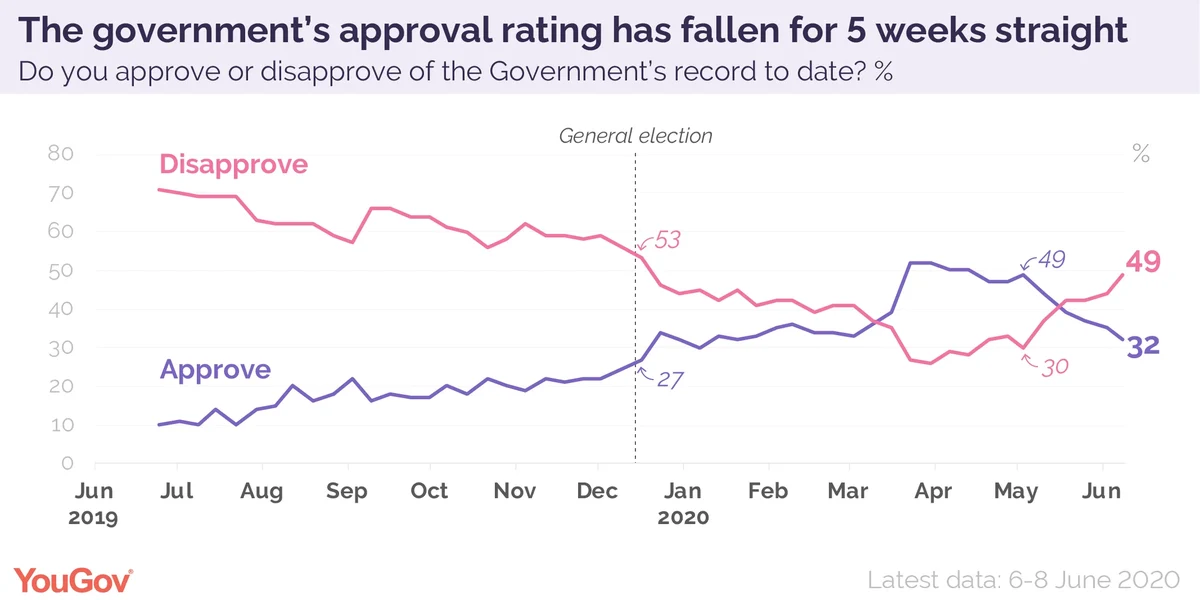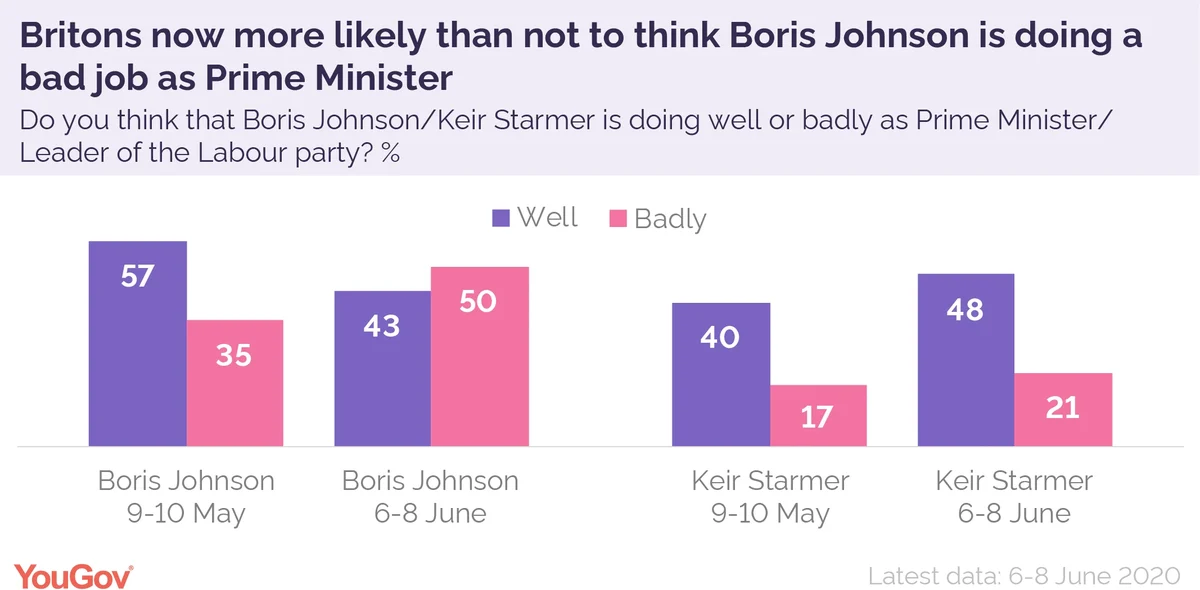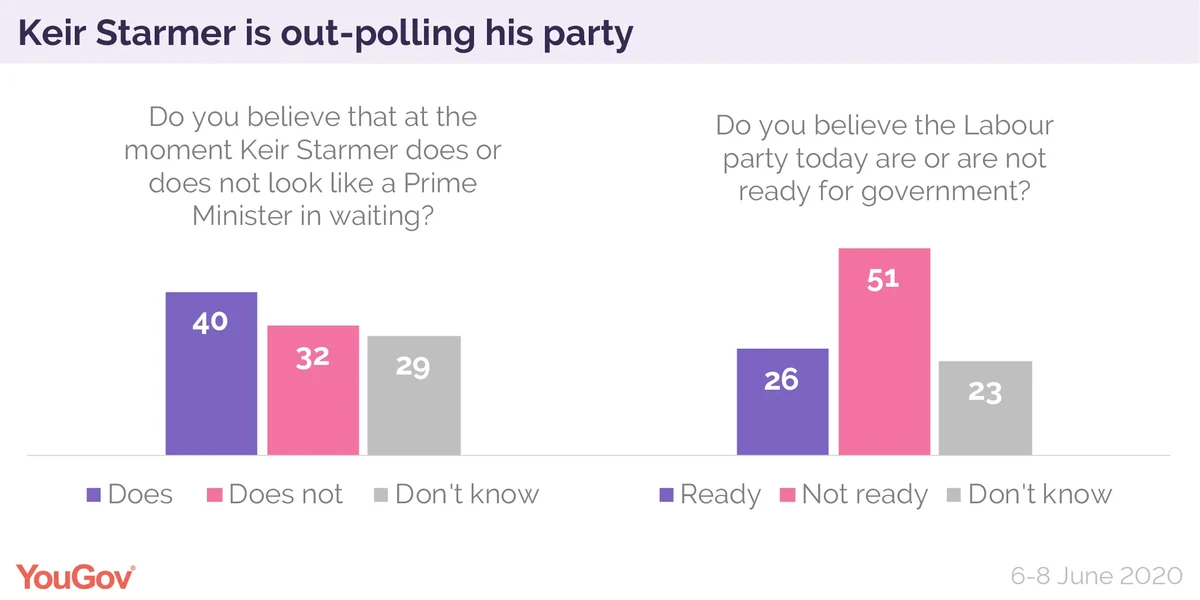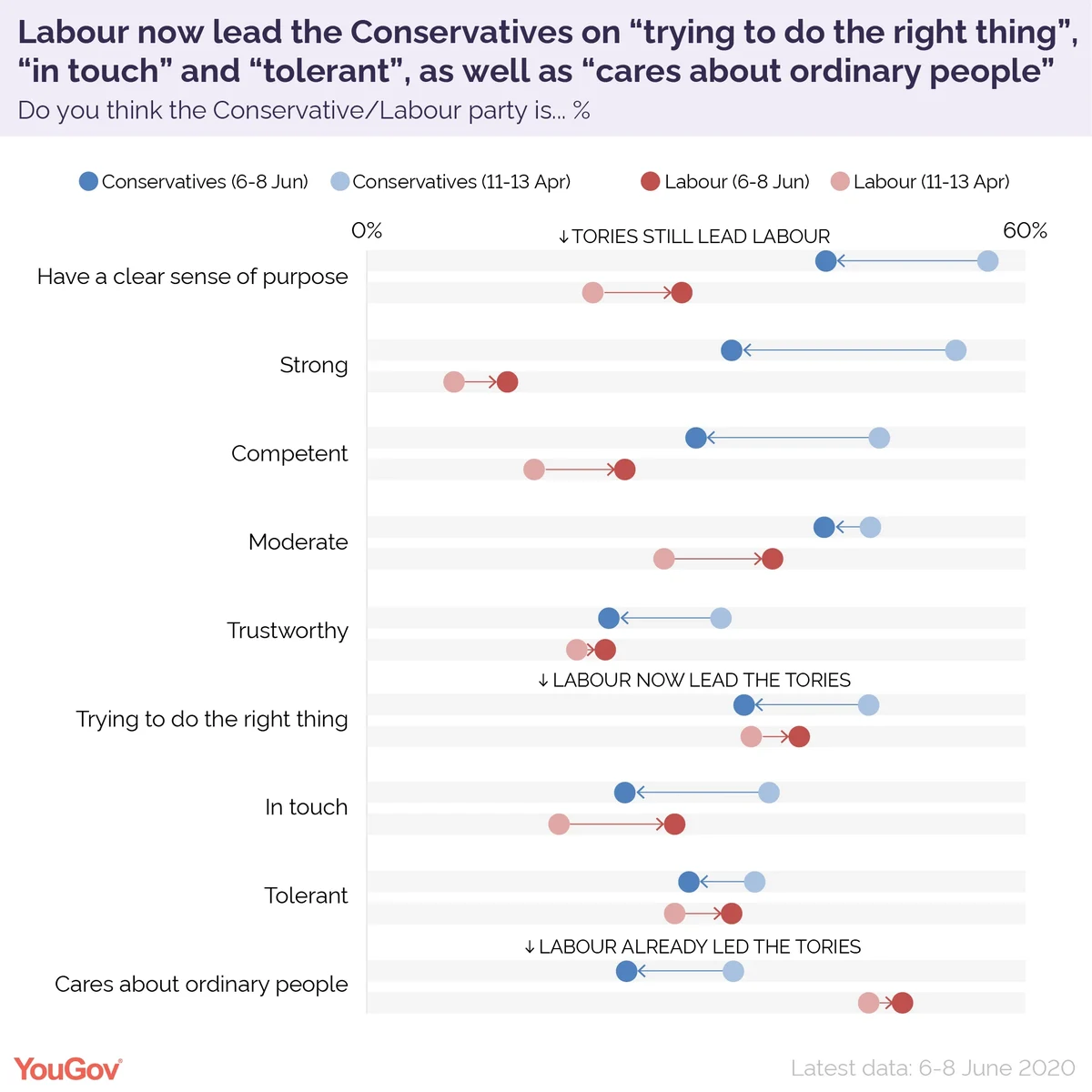The government's response to the coronavirus crisis has damaged Boris Johnson and the Tories' reputation
As the coronavirus pandemic rumbles on, politics is increasingly returning to business as usual, which is having a clear impact on polling.
Voting intention polls released by multiple pollsters over the past couple of weeks have consistently shown a large drop in the Conservative lead, mostly from the high teens down to the low single digits.
However, at this stage in the parliament, it is also worth looking under the bonnet at some of the underlying views and perceptions of the parties and their leaders, as an indication of what might be changing and how this could affect things in the very long run up to the next election.
The government’s approval rating continues to fall
The government’s approval rating has continued to fall this week, with just 32% now saying they approve of the government’s performance (down three points from the week before), compared to 49% who say they disapprove (up five). This is the fifth week in a row the government’s approval rating has fallen, with net approval dropping around seven points a week on average.

Some of this will be down to increased criticism of how the government has handled coronavirus, with Britain now bottom of YouGov’s international league table in terms of public perception of government management of the crisis.
But part of this is just an inevitable return to normality. The government’s approval ratings looked unsustainably high at the start of the coronavirus crisis, given this is a metric that has sat in negative territory for almost all of the past two decades.
The approval rating is still higher than it was when the government won the general election back in December, and it mostly falls down party lines, with 66% of Conservative voters approving and 83% of Labour voters disapproving.
But the direction of travel will be worrying for those in Downing Street, particularly given the difficult and potentially unpopular decisions they have to make over the coming weeks and months.
Starmer is outpolling both Boris Johnson and his own party
While it is still very early days, it is increasingly looking like the new opposition leader has landed well with the public.
This week 48% now say he is doing well as leader of the Labour party, up 8 points on a month ago. The number saying he is doing badly has also risen from 17% to 21%, with the difference made up by a drop in those responding “don’t know” as Starmer becomes a more familiar figure.

These numbers compare favourably against the Prime Minister, with just 43% now thinking he is doing well (down 14pts) and 50% thinking he is doing badly (up 15).
Perhaps even more positively for Starmer, 40% of the public say he looks like a Prime Minister in waiting, up 8pts, while 32% say he doesn’t, down 1pt.

However, while the public may increasingly see Starmer as up to the job, this is still not the case for his party. Just a quarter (26%) think Labour are ready for government, compared to 51% who still think they aren’t.
Labour’s brand is improving, but there are still challenges on key metrics
That is not to say the Labour party brand isn’t improving, just that it is happening slowly, and in a way that is generally limited to traditional Labour strengths.
Of the nine metrics we test to look at party brand, the Labour party was ahead on just one when Keir Starmer took over as party leader: “cares about ordinary people”.
Partly down to a dramatic drop in the Conservatives’ numbers after the Cummings scandal, they have since overtaken them on “trying to do the right thing”, “tolerant”, and “in touch”. They are also now neck and neck on “trustworthy”.

But they still lag far behind when it comes to being “competent”, “strong”, “moderate”, and “have a clear sense of purpose”.
Broadly speaking, this can be summarised as things returning back to normal, with the Labour party increasingly perceived as the nice party who want to help improve people’s lives, and the Conservative party viewed as the one with the leadership skills necessary to run the country.
In most elections, the latter has beaten the former.
So while many within the Labour party might be content with the drop in government approval and the increased popularity of their leader, there is clearly still a big job to in overcoming the weaknesses in the Labour brand.









